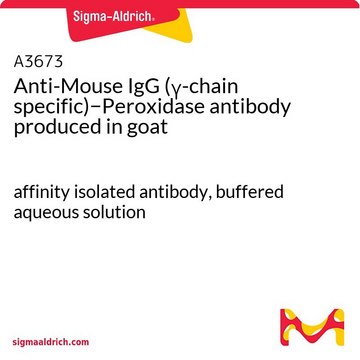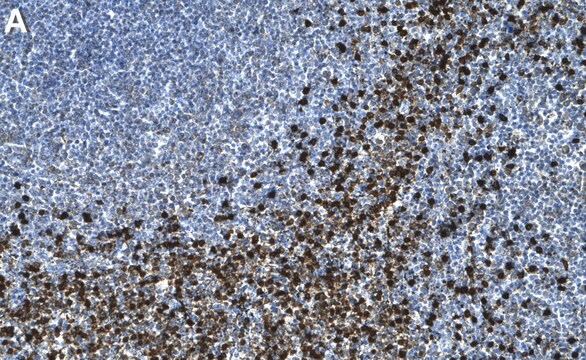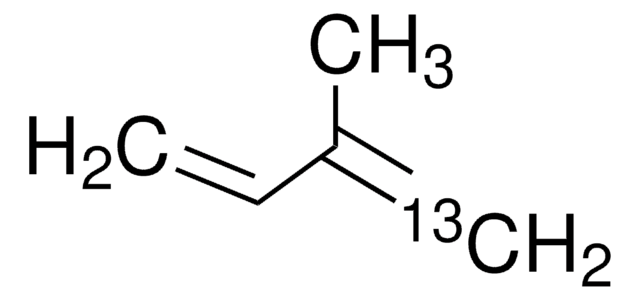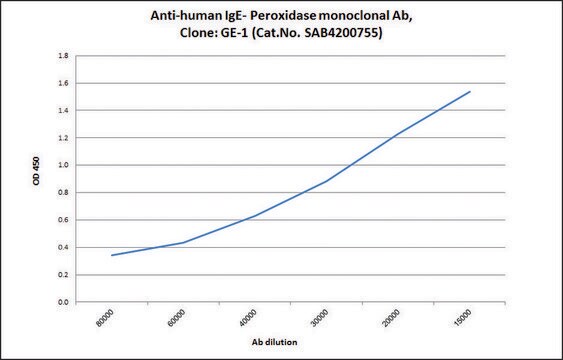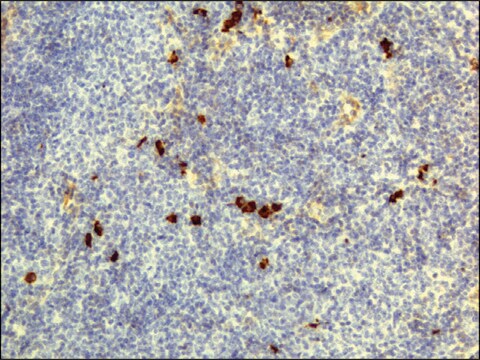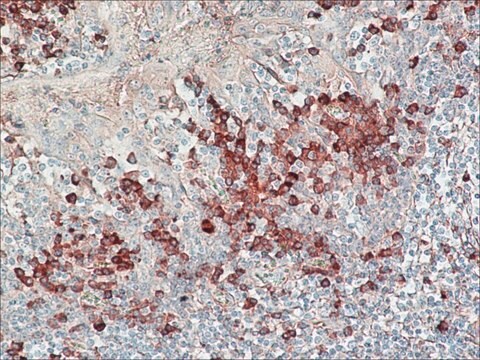SAB3701192
Anti-Mouse IgG3 (γ-chain specific)-Peroxidase antibody produced in rabbit
affinity isolated antibody, lyophilized powder
Synonyme(s) :
HRP
About This Item
Produits recommandés
Source biologique
rabbit
Niveau de qualité
Conjugué
peroxidase conjugate
Forme d'anticorps
affinity isolated antibody
Type de produit anticorps
secondary antibodies
Clone
polyclonal
Forme
lyophilized powder
Espèces réactives
mouse
Technique(s)
immunohistochemistry: suitable
indirect ELISA: suitable
western blot: suitable
Conditions d'expédition
wet ice
Température de stockage
2-8°C
Modification post-traductionnelle de la cible
unmodified
Description générale
Spécificité
Immunogène
Propriétés physiques
Forme physique
Reconstitution
Clause de non-responsabilité
Vous ne trouvez pas le bon produit ?
Essayez notre Outil de sélection de produits.
Faites votre choix parmi les versions les plus récentes :
Certificats d'analyse (COA)
Vous ne trouvez pas la bonne version ?
Si vous avez besoin d'une version particulière, vous pouvez rechercher un certificat spécifique par le numéro de lot.
Déjà en possession de ce produit ?
Retrouvez la documentation relative aux produits que vous avez récemment achetés dans la Bibliothèque de documents.
Notre équipe de scientifiques dispose d'une expérience dans tous les secteurs de la recherche, notamment en sciences de la vie, science des matériaux, synthèse chimique, chromatographie, analyse et dans de nombreux autres domaines..
Contacter notre Service technique
